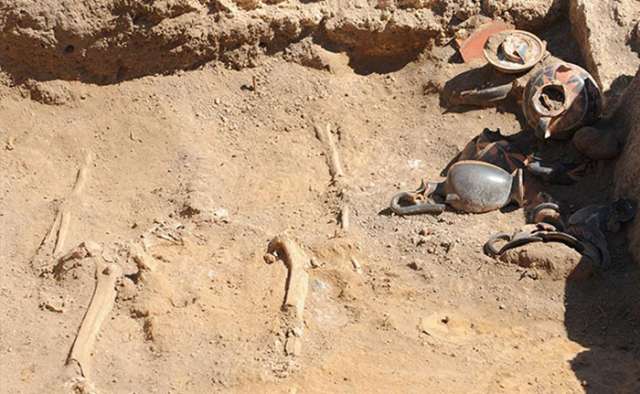On the floor of the grave lay the skeleton of an adult male. Weapons lay to his left, and jewellery to his right.
Near the head and chest was a bronze sword, its ivory hilt covered in gold. A gold-hilted dagger lay beneath it.
Still more weapons were found by the man`s legs and feet. Near his neck was a perfectly preserved gold necklace with two pendants.
By his right side and spread around his head were over one thousand beads of carnelian, amethyst, jasper, agate and gold. Nearby were four gold rings, and silver cups as well as bronze bowls, cups, jugs and basins.
The find is extraordinary, according to researchers.
"This previously unopened shaft grave of a wealthy Mycenaean warrior, dating back 3,500 years, is one of the most magnificent displays of prehistoric wealth discovered in mainland Greece in the past 65 years," said team co-leader Shari Stocker from University of Cincinnati in the US.
The team has been working on the Palace of Nestor - a site linked to Homeric legend. Though the palace was destroyed by fire sometime around 1200 BC, it is nevertheless the best-preserved Bronze Age palace on the Greek mainland.
Located near the present-day city of Pylos, the king who ruled at the Palace of Nestor controlled a vast territory.
However, this latest find is not the grave of the legendary King Nestor, who headed a contingent of Greek forces at Troy in Homer`s `Iliad`, Stocker said.
Nor is it the grave of his father, Neleus.
"This find may be even more important because the warrior pre-dates the time of Nestor and Neleus by, perhaps, 200 or 300 years. That means he was likely an important figure at a time when this part of Greece was being indelibly shaped by close contact with Crete, Europe`s first advanced civilization," Stocker explained.
More about:
















































